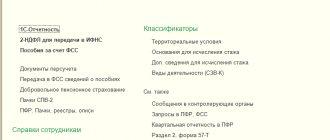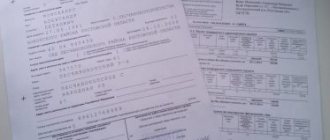No employee will work for his employer for free, so one of the main responsibilities of the employer is to pay wages in full and on time. Therefore, collection of arrears of wages is a frequent procedure in various government bodies dealing with problems of violations of labor legislation (court, prosecutor's office, labor inspectorate).
This article will tell you how to act as efficiently as possible in order to receive all the amounts due under the terms of the employment contract.
General advice on all methods of collecting required earnings
To begin with, it is worth drawing the attention of employees who intend to enter into conflict with the employer that this will, at a minimum, entail dissatisfaction. At the most, this will provoke all sorts of tricks on the part of management, up to and including a negative characterization when applying for a new duty station. Indeed, unfortunately, in most cases, after a complaint against management to government agencies, an employee has to quickly look for another job.
Therefore, it is always worth starting with a verbal appeal to the employer. For some employees, a conversation with the head of the organization is enough to resolve a conflict situation. But this will not always bring the desired results.
The next step is a written appeal to the employer. In any case, a pre-trial resolution procedure is provided for all such situations. Otherwise, the court will simply not accept the statement of claim. And the labor inspectorate, together with the prosecutor’s office, also recommend that you first sort things out within the organization, and only then involve third-party organizations.
IMPORTANT !!! If there is a trade union organization at the enterprise or institution, you can involve it in resolving the conflict.
There is another authority that can help the employee - the labor dispute commission.
If the labor dispute could not be resolved within the organization, then the time has come to exercise the citizen’s opportunity to appeal to government authorities for restoration of violated rights.
But you shouldn’t immediately take the claim to court. It is better to start with the labor inspectorate or the prosecutor's office, because to initiate an inspection of the employer's activities by these authorities, a statement is sufficient. And for the court you will have to collect all the documents yourself. In addition, the labor inspectorate and the prosecutor's office can solve this problem in a shorter time, but in the form of a lawsuit, the dispute can drag on for many months. Especially if the employer has a competent representative in court, with whom it will be difficult for an ordinary employee to compete. Judicial practice shows that the scales of justice can tip in either direction, both the plaintiff (employee) and the defendant (employer).
All types of appeals for the collection of wages will be set out below in the relevant sections of this article.
In what order should an application be submitted to an employer?
The claims procedure is also preferable for resolving labor disputes. Therefore, you need to competently draw up an application addressed to the manager about the need for urgent repayment of salary arrears.
It is mandatory to fill out two copies of the application for arrears of wages. One copy is provided to the office of the organization for subsequent transmission to the manager for review. The second remains in the hands of the applicant employee. On the employee’s copy, the specialist from the office must put the registration number of incoming correspondence and the date of receipt of the application. As a rule, there is a special stamp for this. Without this, the application may “accidentally get lost” on the way to the boss.
ATTENTION !!! The deadline for considering an employee’s appeal is not fixed by labor legislation. There is a clear gap in the law here, which creates significant difficulties for both sides of the dispute. By analogy with appeals to government agencies and local governments, a 30-day period is applied.
How to make an application? The appeal can be either handwritten or printed. In the upper right corner the position and last name, first name and patronymic of the head of the organization are indicated; below is the position, as well as the last name, first name and patronymic of the applicant. According to the rules of office work and the Russian language, the word “from” is not written, because the statement is “whom” and not “from whom”.
Below is the essence of the statement, that is, an indication of non-payment of wages during a specific period.
You can declare a suspension of work if your salary is more than 15 days late and not report to your workplace until your earnings are paid. Salaries for the period of suspension of work are still accrued (at the average rate).
The employee must remind management of Article 236 of the Labor Code, which provides for the payment of 1/150 of the currently current key rate of the Central Bank of the Russian Federation on wages not paid on time, even after dismissal for three months (a ten percent rate is currently in effect). This also applies in the event of an innocent delay in monthly payment.
All this is supported by a warning to contact the relevant supervisory authorities or directly to the court.
After receiving a response about the positive result of the consideration of the application, the employee must appear at work no later than the next day. Failure to appear at the workplace will give the employer all grounds for dismissal “under the article”, i.e. for absenteeism.
Obvious and probable
In the presence of such a number of supervisory and control bodies, multi-billion dollar salary debts should not arise, or they should be more of a technical nature (late transfers, enrollment, etc.) than economic. However, this is not the case, experts agree.
First of all, management bodies, that is, the general director, board of directors, management, and not the owners of the companies should be responsible for solving the operational problems of companies, including responsibility for the timely payment of wages. The main task of the owners, if they are not also members of the board of directors, is to provide authorized capital, create an initial business model, build a strategy, and appoint or elect governing bodies.
If problems with wage arrears have arisen at state-owned enterprises, then the state’s role in solving these problems should be more active. The state initially has much greater resources; it itself is both a regulator and a supervisory body; moreover, it does not bear the same business risks as a private founder.
note
Overdue wages in the last few years, unlike in the 1990s, have not been as severe, says Elena Kiseleva, an analyst at the Institute for Integrated Strategic Studies (ICSI). She noted that last year it was approaching three billion rubles. Now the total amount of “arrears” is less than 1% of the monthly salary fund of all employees. At least, this situation is observed for those types of economic activities that fall under the supervision of Rosstat. However, the statistical agency does not study small businesses, only large and medium-sized companies.
Such industries as trade, hotel business, public catering (which are often small businesses) do not fall under the supervision of Rosstat. At the same time, during the pandemic, it was the service sector and small businesses that came under attack, which had some positive effect in the reporting.
But besides the fact that small businesses in most cases are simply methodologically not included in the official statistics on overdue debts, piecework forms of payment and “gray” payments are common in this area of work. As a rule, they receive a salary or the main part of it based on the work performed. If enterprises did not work or the number of orders decreased, then there are no legal grounds for paying wages in the same amount.
How to contact the labor inspectorate if it was not possible to resolve a salary conflict peacefully?
If the appeal does not produce the desired effect on management, then the employee should move on to the next step in protecting the right to remuneration for work, i.e. to go to the state labor inspectorate with an application for recovery of earnings.
There is no approved application form. The application is drawn up in any form, the main thing is to indicate the period for non-payment of wages. The application must be reviewed within 30 days. Most often, an inspection will be ordered, which threatens the manager with serious trouble. After all, in the processes of such inspections, violations are always found. Accordingly, the fine will be not only for late payment of wages, but also for other shortcomings in work. After all, for each of them a separate order can be issued and a separate fine imposed.
...and grows again
Rosstat also reports that of the total amount of unpaid wages as of November 1, debts incurred this year “account for 917.0 million rubles (49.0%), for 2021 - 378.8 million rubles (20.3%) " Another third of the debts were formed in 2018 and earlier years, and they have not yet been paid.
That is, according to official data, most of the debts, almost a billion rubles, arose this year.
One can only guess what the head of Rostrud relied on when announcing the reduction of debt. Moreover, the Ministry of Labor did not provide any explanations. Perhaps the official used a report prepared back in September or October when speaking at the conference.
According to Rosstat, as of October 1, wage arrears for Russians amounted to 1,828.3 million rubles - then it decreased slightly compared to September 1 - by 6.4 million rubles or 0.3%.
Experts interviewed by Gazeta.Ru point to the conditionality of Rosstat’s calculations regarding the salaries of Russians. The total amount of debt can go up or down due to many factors.
Debts may appear in connection with the macroeconomic situation in the country, depending on the tax and tariff policies of the state, due to the level of administrative and other pressure on business, changes in demand and solvency of the population, the desire of workers themselves to defend their rights, etc.
About 4.5 million small and medium-sized enterprises went bankrupt due to COVID-19
Read more…
The legislation contains quite a few mechanisms to force employers to pay wages on time. Responsibility extends to criminal liability, not to mention the fact that there are state labor inspectorates and prosecutors whose powers in these matters are quite extensive.
How should I contact the prosecutor's office?
The prosecutor's office protects a wide range of civil rights and freedoms, including labor rights. As in previous cases, the application is drawn up in free form. Like the labor inspectorate, the prosecutor's office will consider the application for 30 days. During this period, there is active interaction with the management, human resources department and accounting department of the employer.
All necessary documents are requested from the employer; the employee does not provide them (unless he wishes to support his case).
ATTENTION !!! But the prosecutor's office will continue to work on the application only if the manager or other person responsible for paying wages is brought to criminal liability. If the violation is not qualified under Article 145.1 of the Criminal Code of the Russian Federation, then the labor inspectorate will deal with the dispute.
To save time, some far-sighted workers write simultaneous applications to both the prosecutor's office and the labor inspectorate. This is not prohibited by regulatory legal acts.
How to collect a salary debt, where to go?
If it turns out that the employee is not paid his salary, in order to remove the debt and receive his legal earnings, he will need to take several sequential actions.
The first thing you can do to resolve the issue is to write a demand in the form of an application for repayment of salary debt .
The document is registered according to local record keeping procedures. The employee's copy must contain a note indicating acceptance of the letter with the date of receipt. Next, you should wait for the manager's decision.
If the previous step did not lead to either a response or receipt of funds, a complaint is written to the labor inspectorate and the prosecutor's office , after which these bodies officially inform the employer about the received document.
Download a sample complaint to the prosecutor's office about arrears of wages here.
Several days are allotted to resolve the issue of debt to the employee. If, after their completion, the result is also negative, an administrative fine in the form of a large amount is imposed on the organization’s management. There will also be a warning about the threat of criminal liability for failure to comply with obligations under labor law.
The last resort in resolving this situation is to go to the courts. In this situation, by a court decision, the employer may have their bank accounts blocked, as well as property seized until the employees are paid wages and the compensation required by law for late payments.
This algorithm will help to return all due earnings if the employee is officially employed and the correct rates are specified in his contract. In the case of informal employment, or if the contract specifies minimum rates for calculating wages, the employee may either receive nothing or receive the funds earned incompletely.
The court as the final authority in considering cases of unpaid wages
Submitting a statement of claim to the court requires the most preparation, compared to previous types of appeals.
When considering a case of non-payment of wages in court, jurisdiction is determined by the Civil Procedure Code of the Russian Federation. Regardless of the amount of debt, the claim will be considered by the district (city) court. Even if it is less than 50,000 rubles.
ATTENTION !!! When collecting earnings in court, the time frame for filing is reduced to three months. The starting point is the first day of payment delay. The statement of claim is filed at the location of the defendant. This is the general rule. But, if it is more convenient for the plaintiff, you can file a claim at the place of his permanent registration.
If the salary is accrued, but for some reason is not transferred to the employee’s account or not issued to him, a somewhat simplified form of proceedings is possible - issuing a court order as an analogue of a court decision. But this is only in the absence of a dispute regarding the amount of accrued wages. Otherwise, it is necessary to first resolve the conflict situation regarding the amount of earnings.
You have 10 days to challenge the court order. After this it must be executed.
The state fee for filing a claim for violated labor rights is not paid by the employee.
The application indicates the name of the court, details of the plaintiff and defendant, the essence of the conflict, and lists supporting documents. In the final part, they indicate their requirements regarding the amount of wage arrears.
The outcome of the case will depend on how well the claim is drawn up and what documents are presented.
What should the employee expect next?
If all the requirements for the application for the issuance of a court order were met by the employee, then after 5 days a copy of it will be sent to the employer (Article 126 of the Code of Civil Procedure of the Russian Federation).
But not everything is so smooth for the employee.
Important! The employer has the right to file his objections to the court order within 10 days.
And in this case, the order is canceled and the employee will have to file a lawsuit in court in the general manner (Article 129 of the Code of Civil Procedure of the Russian Federation). Copies of the court ruling to cancel the court order are sent to the employer and employee no later than three days after the day it was issued.
If no objections are received from the employer, a court order is issued to the employee. And then the employee has the right to present it to the bailiffs for execution, or directly to the bank in which the debtor-employer has a current account.
If the organization fails to comply with the court order within the period established for voluntary execution, the employer will also pay an enforcement fee. Such a fee is set at 7% of the wages subject to collection, but not less than 5 thousand rubles from the debtor company.
Employer bankruptcy as the most problematic situation in collecting wages
If the employer goes bankrupt, the employee may not receive his salary through the court, it all depends on how much property the organization (or individual entrepreneur) has left. After all, wage debts are reimbursed only after payment of legal costs and the activities of the arbitration manager.
Moreover, there are registered and current salary debts. Registered debts arise before bankruptcy, and current debts arise after. With registered salary debts, the employee will be included in the list of creditors. But you may not get them. Entry into the register of creditors is possible by court order provided to the insolvency practitioner. If there is no order, then you can write an application to verify the existence of a debt to this employee in the bankruptcy register.
Current salary debts are immediately taken into account by the arbitration manager.









